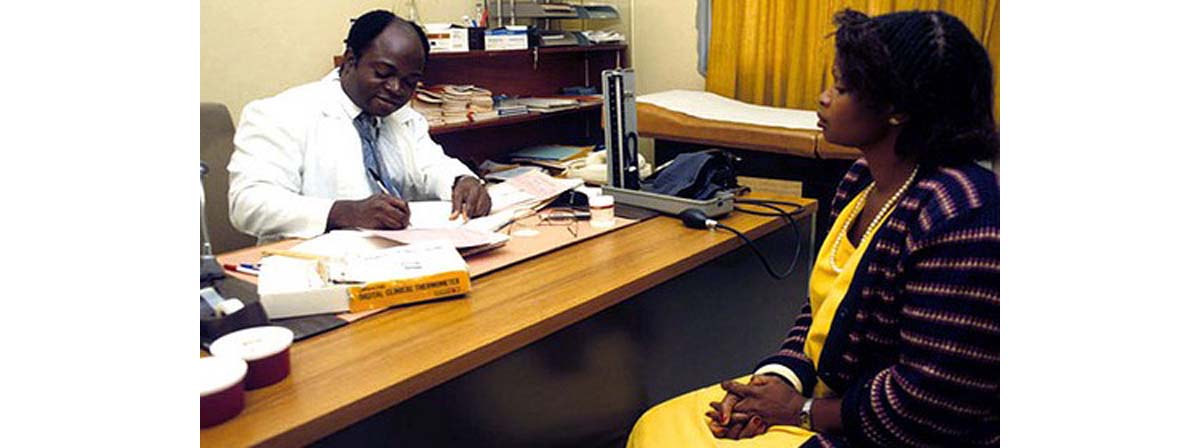Table of Contents
Of course, if you happen to be overweight, the idea that doctors seem to dislike fat people won't strike you as in any way strange. If you are overweight and you go to see your doctor about a sore throat, chances are that you will also be told you need to lose weight. If you are overweight and you go to the ER with a broken finger, you might just be told you need to lose weight. And if you are overweight and you go to the doctor for weight loss advice, you are told you should have come in earlier.

The simple fact is that people who are overweight or obese often indulge in "doctor shopping" to find a medical provider they are comfortable with, and starting over with a new doctor often involves repeating medical tests and losing continuity of care. Or, worse, overweight patients cannot find a doctor they do not feel is insulting them and stop going in for medical treatment altogether as a consequence of this unfortunate fact.
As a result, the first diagnosis of heart disease may be a finding of sudden death by the medical examiner, the first detection of diabetes may occur after blindness or gangrene, or cancer treatment may not be initiated before the condition has reached its advanced stages. Both doctor shopping and receiving care from a doctor who does not take your concerns seriously and who you avoid seeing as a result can have extremely serious consequences, then. Finding a doctor you can trust and feel respected by is, without hyperbole, a potential matter of life and death.
What can you do if you are overweight and you feel your doctor is cold or disrespectful?
Here are some simple suggestions:
- Seek medical care at clinics that make compassion a priority. The Yale University Medical Center clinics, for example, make sure their doctors have sensitivity training. Similar programs are found in clinics all over the country — but they aren't everywhere.
- If you struggle with your weight, make sure your doctor knows that the measures you are taking. If dieting doesn't work for you (and it usually doesn't), ask the doctor what to do instead. Then consider the advice seriously.
- If you are happy with your size, let your doctor know this, too. Insist that your doctor make recommendations on more measurements than just your weight.
- Don't tolerate overt rudeness, a suggestion that you are lazy, stupid, or gluttonous, for example. On the other hand, don't conflate ill-phrased but well-intentioned remarks into grounds for taking offense, as there is no question that losing weight will indeed improve your health outcomes.
- Take into account that doctors are people, too, and antipathy to obesity is rooted in American culture. Be the more mature party of your transaction with your doctor. Get the medical advice you need and go on your way.
Or you might just seek out a physician who is himself or herself overweight. In another study, some of the same researchers at Johns Hopkins found at doctors diagnose obesity in 93% of patients who are heavier than they are, but in only 7% of patients who are not. Doctors suggest weight loss for 89% of patients who are heavier than themselves, but in only 11% of patients who are not. When your doctor is overweight, too, they will understand your struggles and this may translate into a friendlier experience.
- Bleich SN, Bennett WL, Gudzune KA, Cooper LA. .Impact of physician BMI on obesity care and beliefs. Obesity (Silver Spring). 2012 May. 20(5):999-1005. doi: 10.1038/oby.2011.402. Epub 2012 Jan 19.
- Gudzune KA, Beach MC, Roter DL, Cooper LA.Physicians build less rapport with obese patients Obesity (Silver Spring). 2013 Mar 20. doi: 10.1002/oby.20384. [Epub ahead of print]
- Photo courtesy of juliadon by Photobucket : media.photobucket.com/user/juliadon/media/doc_patient.jpg.html?filters[term]=patient%20doctor&filters[primary]=images&filters[secondary]=videos&sort=1&o=11
- Photo courtesy of International Institute of Tropical Agriculture by Flickr : www.flickr.com/photos/iita-media-library/8208361048/


Your thoughts on this